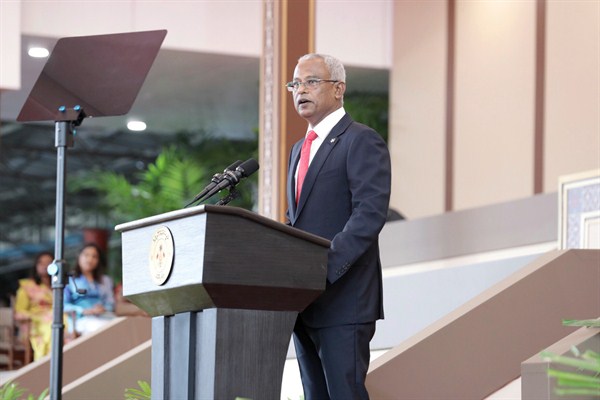The new president of the Maldives, Ibrahim Solih, was sworn in earlier this month, only to find that the state coffers had been “looted” by his autocratic predecessor, Abdulla Yameen. Solih has pledged to rein in corruption and realign the small island nation’s foreign policy, moving away from Yameen’s reliance on China and cultivating closer ties with India. But according to David Brewster, a senior research fellow at the Australian National University’s National Security College, that won’t be easy. In an interview with WPR, he explains why.
World Politics Review: What were the factors that propelled Solih to victory in the September election?
David Brewster: Former President Abdulla Yameen’s corrupt and autocratic tendencies were clearly major factors in his election defeat. Yameen did his best to undermine the Maldives’ democratic institutions, including Parliament and the Supreme Court, and imprisoned his critics, including former President Maumoon Gayoom, who ruled the Maldives for 30 years until 2008. At the same time, Yameen and his associates were enriching themselves at the country’s expense, including by taking big bribes, probably from his Chinese backers.

